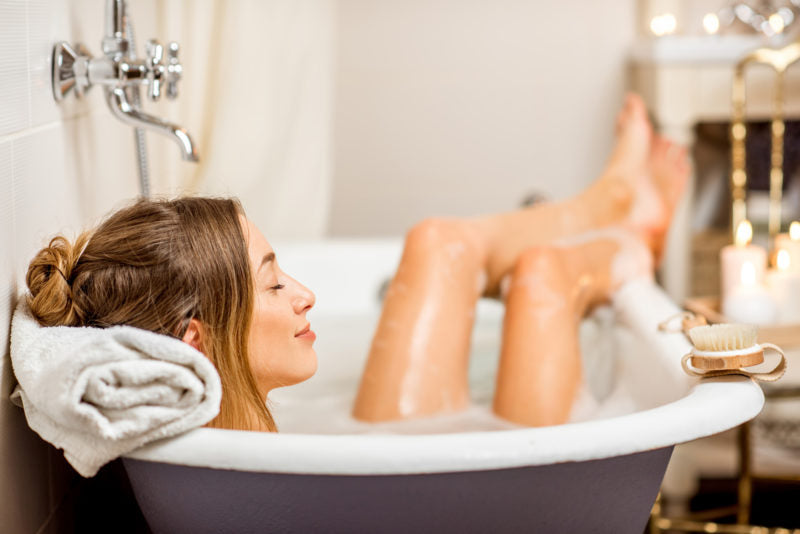Self-care is described as “the practice of taking an active role in protecting one’s own well-being and happiness, in particular during periods of stress”.
In today’s modern society, stress is a common side effect in the pursuit of high performance, career goals and perfection. External factors can be just as bad, and right now we’re dealing with a pandemic that causes a lot of stress for many people.
It’s important to note that severe conditions of stress and anxiety should be consulted and treated by a professional, but there are easy ways to take control over mild stress in the comfort of your own home. Here are 10 great tips on how to practice self-care:

1. Morning meditation and journaling
Start each new day with some meditation of your choice, such as breathing exercises or listening to calming music or sounds. Keeping a gratitude journal is also a good way to keep track and focus on the positive things in life.

2. Morning yoga and/or stretch
Yoga is another good way to start, and set an intention for the day ahead. YouTube offers a range of yoga instruction videos for free, with varied lengths. Otherwise a quick stretch is enough to wake up tired muscles and get the energy flowing.

3. Physical activity
Besides yoga, there are plenty of other forms of exercising. Physical activity has a huge impact on our overall wellbeing. For example, it increases the energy level and alertness, and has a positive effect on the mood. Regular activity can even help reduce stress and anxiety.

4. Spend time in nature
Nature really has a calming effect on people. It’s a fact that spending time in nature can help with mental health issues, such as anxiety and depression. If you don’t have time for a soothing hike or fast-paced bike ride, a 15-minute walk or run is enough to clear the head and get the energy level up.

5. Dedicate one day a week to yourself
Make your wellbeing a priority and dedicate one day a week (or however often is possible) to yourself. Sunday is usually a perfect day for self-care practices, and a good way to finish off a long working week. Focus on doing what makes you feel happy and relaxed, whether it’s cooking or baking something delicious and/or healthy, putting on a relaxing facemask, or watching your favorite feel-good movie.

6. Light an aromatherapy candle and read a good book
What is more relaxing than cozying up on the couch with a hot cup of tea, a good book and some burning aromatherapy candles of your choice.

7. Spa day at home, or at least a few hours
A calm spa day at home, focusing on your outside, can make wonders for your inside as well. Soaking in a hot bath has many health benefits, and why not add some essential oils to make it even more soothing. Try some exfoliating dry brushing before the bath to increase blood circulation, and do a face and hair mask while inside the bath.

8. Cleaning (yes, really)
Cleaning sounds like the opposite of relaxing, but it may in fact help with stress to organize, clean or declutter your home. Take a few hours to finally clean out that closet, fridge or storage that you’ve been dreading for so long. Even if it’s boring in the moment, it will leave you feel accomplished and less stressed afterwards. Some people even find cleaning to be soothing. You can always listen to some good music or a podcast while doing it to make it more fun.

9. Social media detox
Take a break from your phone and laptop for a few hours, and especially from your social media accounts. As much fun as the various social media platforms can be, it can also cause stress for many people. Additionally, you can set a timeframe for how much time a day you’re allowed to spend on Instagram, Facebook and Twitter. It’s also a good idea to leave the phone alone for a while before going to sleep, as the light from the screen may affect the ability to fall asleep.

10. Get quality sleep
Last but not least, a good night’s sleep is very important to feel rested and focused throughout the day. If possible, try to get into a routine that works best for you and go to sleep and wake up around the same time every day (this may of course depend on working hours and other factors). How many hours of sleep a person needs is individual, but most adults need between seven and nine hours.







0 comments